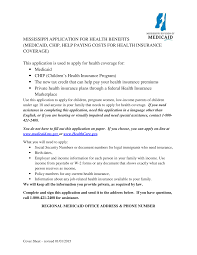
What is premium tax credit?
The premium tax credit is a federally funded program that reduces the cost of insurance premiums when you purchase coverage through the Health Insurance Marketplace. Families and individuals that meet the eligibility requirements with an income below the federal level of poverty can receive this tax credit.
How does it work exactly?
When you apply for health insurance through the Marketplace, you estimate your family's income so that your insurer can determine the amount of the premium tax credit you'll receive. This credit will be sent directly to your insurer, which will lower your monthly premiums.
If you're eligible for a credit on premiums, your insurance company will send you an "Health Insurance Marketplace Statement", or 1095A, when they issue your policy. The form will report your tax credit to IRS.
Your premium credit is based off your estimated household revenue and the size your tax family. (You, your spouse or dependents if you filed jointly with your spouse) If your income changes during the year, or if your tax family size changes, then your premium tax credit will change.

What happens if you end up with more income than you expected?
Your premium tax credit may need to be repaid if your household income rises during the year. You can only pay up to 400 percent of the household income. The "clawback" is what this is commonly called.
What happens when your income changes?
Marketplace needs to be informed of any changes as soon possible. You will avoid having to pay back any excess premium tax credits at the end.
The amount of money you must pay back is determined by your income, and whether it is above or below the poverty level. The rules are outlined in the instructions for Form 8962, which is used to report information related to claiming an offset to the cost of purchasing health insurance through the Health Insurance Marketplace.
What is Form 892?
When you file an income tax return you will need to declare the amount that you received for your premium tax advance during 2021. The amount you have to pay back will depend on the results of the reconciliation of the advance premium tax credit that you received during 2021 with your actual premium credit for that year.
On Form 8962, you reconcile the advance tax credit received in 2021. This form may be found at your state website or on the IRS website.

IRS: You will need to provide the IRS with the results of a reconciliation of the credit for advance premiums you received in 2020. This will appear in your 2021 federal return on Part III, Line 29.
There are exceptions to the rule. For example, if your household's income is over 138% of the federal poverty level and you live in a state which has not expanded Medicaid under the ACA. Or if unemployment compensation was paid for any week in 2021. These exceptions, however, only apply to income you reported for your taxes in 2021.